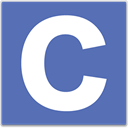Unleash Your Code: Discovering the Best D (Programming Language) Alternatives
D (Programming Language) is renowned for its C-like syntax, static typing, and a pragmatic blend of efficiency, control, and productivity. It offers features like automatic memory management, robust concurrency models, and the ability to finely tune safety and speed. However, no single language fits every project or developer preference. Sometimes, you might be looking for a different approach to productivity, a broader ecosystem, or specific platform support. This is where exploring a D (Programming Language) alternative becomes essential.
Top D (Programming Language) Alternatives
While D offers a unique blend of features, several other powerful programming languages provide compelling alternatives depending on your specific project requirements, development style, or desired ecosystem. Let's delve into some of the top contenders.

Python
Python is an interpreted, interactive, object-oriented, and extensible programming language known for its extraordinary clarity and versatility. It's a free and open-source alternative available across numerous platforms including Mac, Windows, and Linux. With dynamic typing, automatic garbage collection, and a modular system, Python offers a high-level approach that can significantly boost development speed compared to D, especially for scripting, web development, and data science.

Java
Java is a concurrent, class-based, object-oriented general-purpose programming language designed for maximum cross-platform compatibility. As a free and open-source solution, Java runs on virtually any device, including Windows, Linux, Mac, and Android. Like D, it features garbage collection and strong object-oriented principles, but its vast ecosystem, enterprise-grade frameworks, and mature tooling make it a robust D (Programming Language) alternative for large-scale, distributed applications.

PHP
PHP is a widely-used general-purpose scripting language specifically suited for web development and can be embedded directly into HTML. It is a free and open-source language available on Mac, Windows, and Linux. For those focusing primarily on server-side web applications, PHP provides a more direct and often simpler development path than D (Programming Language), offering object-oriented capabilities and a massive community.

C (programming language)
C is a foundational, general-purpose computer programming language, one of the most widely used of all time, known for its efficiency and low-level control. It's a free and open-source language available across a vast array of platforms. For systems programming where direct memory management and ultimate performance are paramount, C serves as an excellent D (Programming Language) alternative, offering compiled code, inline assembly, and direct hardware interaction.

C++
C++ is a statically typed, multi-paradigm, compiled, general-purpose programming language regarded as an intermediate-level language. It is free and open-source, available on Mac, Windows, and Linux. Similar to D, C++ excels in systems programming and performance-critical applications, offering object-oriented capabilities and fine-grained control over resources, making it a powerful D (Programming Language) alternative for complex software systems and game development.

Ruby
Ruby is a dynamic, reflective, general-purpose object-oriented programming language, often praised for its elegant syntax and developer happiness. It is a free and open-source language supporting Mac, Windows, and Linux. As a D (Programming Language) alternative, Ruby provides a more dynamic and expressive coding experience, particularly for web development (via Ruby on Rails) and scripting, emphasizing convention over configuration and excellent text processing capabilities.

C#
C# (C-Sharp) is a multi-paradigm programming language developed by Microsoft, encompassing strong typing, imperative, functional, and object-oriented paradigms. It is free and open-source, available on Mac, Windows, and Linux. For developers working within the .NET ecosystem, C# offers a robust, compiled, and object-oriented D (Programming Language) alternative with extensive libraries and tools for developing desktop, web, and cloud applications.

Go (Programming Language)
Go, often referred to as Golang, is an open-source programming language designed by Google to make it easy to build simple, reliable, and efficient software. It is free and open-source, supporting Mac, Windows, and Linux. With built-in concurrency features, fast compilation, and a focus on readability and performance, Go stands out as an excellent D (Programming Language) alternative for building scalable network services, microservices, and high-performance command-line tools.

Rust
Rust is a systems programming language that emphasizes safety, concurrency, and performance. It runs blazingly fast, prevents almost all crashes, and eliminates data races. It's a free and open-source language available on Mac, Windows, and Linux. Rust offers a compelling D (Programming Language) alternative for low-level programming where memory safety and performance are non-negotiable, providing static typing, robust type inference, and a powerful package manager.

Lua
Lua is a powerful, fast, lightweight, and embeddable scripting language. It combines simple procedural syntax with powerful data description constructs. It's a free and open-source language, widely available on Mac, Windows, and Linux. For scenarios requiring a highly performant and easily embeddable scripting language, such as game development or extending applications, Lua offers a strong and lighter-weight D (Programming Language) alternative.
Ultimately, the best D (Programming Language) alternative depends on your project's specific needs, your team's familiarity, and the desired balance between performance, development speed, and ecosystem support. We encourage you to explore these options further to find the perfect fit for your next programming endeavor.